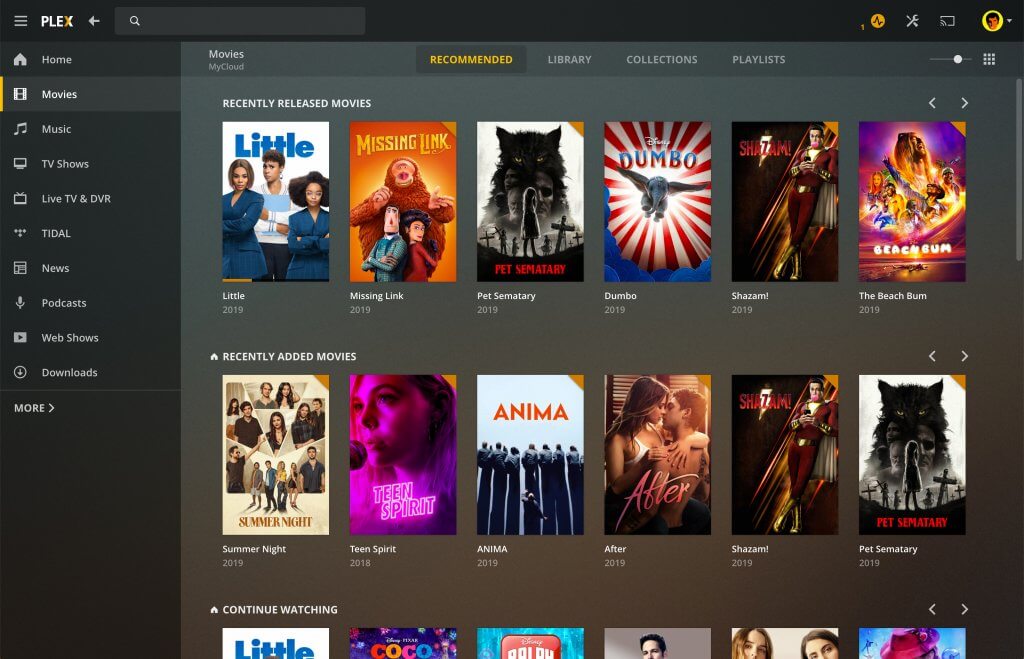

where the ultimate in picture and audio quality doesn't really matter.
Plex client for mac full#
That may mean you need to store two copies of the media to ensure compatibly with all your clients, but I'd go with one super-duper full fat version for the "big" TV with the attached multi-channel audio system where quality "matter" and one "basic" (say) Mpeg2 (or maybe H264 these days) with stereo audio - ie maximum compatibility - for the phones, ipads, kitchen TV etc. Instead of transcoding in real time, do it once "off line" whence you can let it run for hours in order to get everything "just so" without having to worry that anything is being compromised to "keep up" with real time requirements. It'll run cooler and quieter, use less electricity, the results will be the same every time and multiple concurrent streams will not effect each other (unless you have ultra slow HDD's or want more then half a dozen (or so) streams running concurrently.) Then all the server has to do is serve files and pretty much any hardware will be able to handle that. I've long opined that IMHO the best way to deal with real time transcoding is to just not do it at all. So really, we ought to turn the question on it's head and not ask "what hardware do I need" but instead "what compromise am I prepared to accept for the hardware I have." Of course, the more streams one wants to transcode concurrently, the more this is exasperated. (and it depends on the source and target formats involved.)

not much compression, artifacts in the images, etc. that is adequate for the job, or I guess more correctly we've yet to see anything that exceeds the requirements (whatever number of streams.) Real time-coding will take as much processing capability as it can get and if the hardware is inadequate, then the trans-coding process will be compromised in some way - e.g. With real time trans-coding, there's not"magic" hardware spec.


 0 kommentar(er)
0 kommentar(er)
